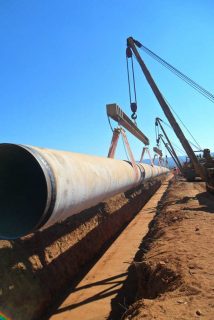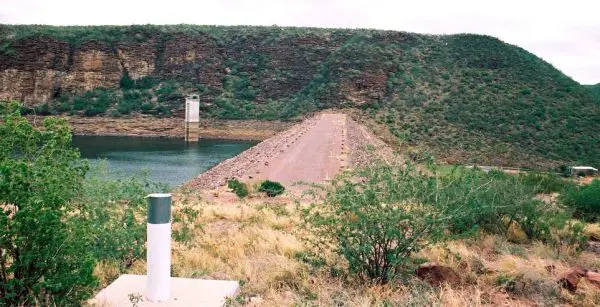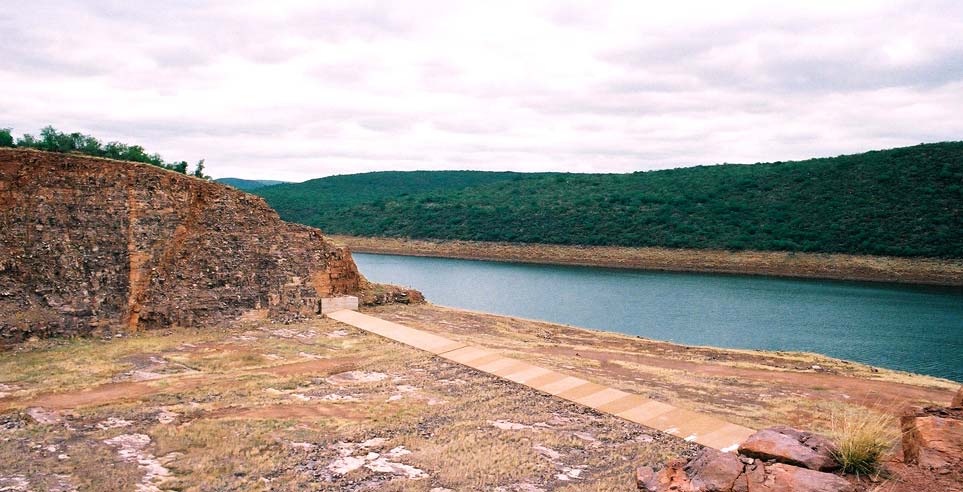Mokolo Crocodile Water Augmentation Project (MCWAP) involves the construction of a 46km pipeline and a pump station transferring water from the Mokolo Dam to supply water to EXXARO Grootegeluk Mine, Eskom’s Matimba Power Station, Lephalale Municipality and to supply the new Medupi Power Station.
Funding the project
Despite the fact that long term funding was sought from markets, the Department of Water and Sanitation (DWS) provided funding for the Mokolo Crocodile Water Augmentation Project to allow the project to continue. During the financial year the tender for long term funding closed and was 6 times oversubscribed, indicating continued long-term confidence in Trans-Caledon Tunnel Authority (TCTA) projects. Income from the sale of bulk raw water delivered to the off-takers will be used to repay the project debt.
Phase 1 comprised the construction of a 4.5MW pump station and 46km (of up to 1 100 mm diameter) pipeline, delivering approximately 30 million cubic metres of water per annum, taken from the Mokolo Dam in the mountains south of Lephalale. This infrastructure was constructed parallel to, and tying in with, existing infrastructure supplying Exxaro’s Grootegeluk Mine, Eskom’s Medupi Power Stations and Matimba; and the Lephalale Local Municipality.
Phase 2 of the Mokolo Crocodile Water Augmentation Project will include an abstraction weir in the Crocodile River, de-gritting channels with high and low lift pump stations, and approximately 160km of pipeline with break pressure and balancing reservoirs.

Mokolo Crocodile Consultants (MCC), a Joint Venture between Vela VKE Consulting Engineers, Goba, Aurecon, PD Naidoo and Associates and Worley Parsons is the engineering consultant for the Project. Aveng (Africa) Ltd and Umbutho Civil and Electrical cc JV (AUJV) is the construction contractor on the Mokolo Crocodile Water Augmentation Project. The land which was critical for construction to commence was acquired timeously.
Also Read: Lesotho Highlands Water Project (LHWP) timeline and all you need to know
Timeline
2010
The Environmental Authorisation for Phase 1 was granted in December 2010. Work also commenced with the detailed Construction Environmental Management Plan for Phase 1. Baseline studies were initiated to determine ambient conditions and background variability for aspects such as vegetation, dust and water quality.
Traffic volumes and road conditions were investigated. Detailed mapping, identification and analysis of assets and infrastructure in the pipeline servitude area were conducted. Environmental performance criteria were integrated into the infrastructure design and contract specifications of the tender documentation.
2011
In September, the contractor mobilised and moved to the site. In November, construction works commenced after TCTA gave the right of access to and possession of the priority parts of the site, which includes the rising main from Mokolo dam to Wolvenfontein balancing dams.
2015
Phase 1 of the Mokolo Crocodile Water Augmentation Project was successfully commissioned.

2018
Environmental impact assessment (EIA) authorization issued in December by the Department of Environmental Affairs.
2019
Construction of phase 2A began in June but no sooner had it started, than it stalled in early August due to an appeal launched in April by Earthlife Africa and groundwork, against the environmental impact assessment (EIA) authorization issued in 2018 by the Department of Environmental Affairs.
Earthlife Africa and groundwork called on the Minister of Water and Sanitation to review and set aside the authorization of the project, owing to environmental impacts the project will bring including the impact it will have on the climate.
However, according to DWS spokesperson Sputnik Ratau, the appeal does not prohibit any organization against continuing its preparatory works in anticipation of the project. “The project is currently at the preparation stage with documentation and tender-design having commenced,” he said.
2020
In October, the Minister of Environment, Forestry and Fisheries Ms Barbara Creecy released her response to the appeals and rejected their grounds, clearing obstacles to commencement of phase 2.

Leave a Reply